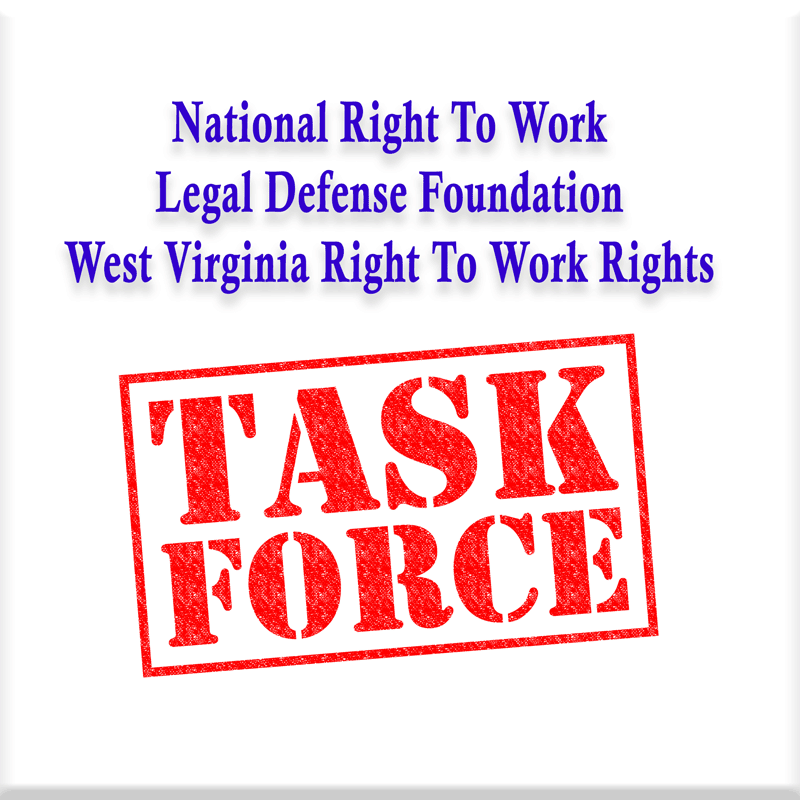Will Team Biden Weaponize Workers’ Pensions?
Big Labor abuse of worker pension and benefit funds as a means of advancing union bosses’ self-aggrandizing policy objectives is a familiar phenomenon.
from The National Right to Work Legal Defense Foundation:

Worker Files Brief in West Virginia Supreme Court Defending Right to Work Law
The new brief was filed by a pro-Right to Work West Virginia worker and the National Right to Work Legal Defense Foundation
Charleston, WV (March 29, 2017) – National Right to Work Legal Defense Foundation staff attorneys have filed an amicus curiae brief with the West Virginia Supreme Court in the case AFL-CIO v. Tomblin. The brief was filed Tuesday for the National Right to Work Foundation and Reginald Gibbs, an employee of the Greenbrier Hotel and Casino. Gibbs supports the state’s Right to Work Law and the protections it provides workers like him who, without Right to Work, could be fired for refusing to pay money to a union.
The brief responds to the legally dubious arguments that were presented by union lawyers, and accepted by Judge Jennifer Bailey of the Kanawha County Circuit Court. Similar arguments to the union lawyers’ primary arguments in this case for why the Right to Work protections for workers should be overturned have already been rejected by a Federal Court of Appeals and the Indiana Supreme Court when they were raised in cases involving Indiana’s Right to Work law. Furthermore, the Kanawha County Circuit Court decision unilaterally ignores nearly 70 years of legal precedent upholding the constitutionality of state Right to Work laws, including U.S. Supreme Court decisions.
After the Mountain State Right to Work law passed in February 2016, the National Right to Work Foundation offered free legal aid to any employees seeking to assert their rights under the new law. The Foundation also created a special task force to defend the West Virginia law in court from any Big Labor legal challenges. The task force filed an amicus brief in the case in Kanawha County Circuit Court, and moved for Gibbs’ intervention in the case.
“West Virginia’s popular new Right to Work law is a victory for workplace freedom, but union officials never relinquish their forced-dues privileges without a fight,” said Mark Mix, president of the National Right to Work Foundation. “Rather than being accountable by offering workers honest services they are willing to voluntarily pay for, Big Labor continues to pursue lawsuits against the very workers they claim to “represent,” raising spurious legal claims in the hopes that a judge will ignore the nearly 70 years of precedent that upholds Right to Work protections.”
The National Right to Work Foundation has a long history of successfully defending Right to Work laws in state and federal court. In addition to West Virginia, Foundation staff attorneys have taken legal action to defend and enforce new Right to Work laws in Indiana, Michigan, Wisconsin, and Missouri, all of which have passed Right to Work protections for employees since 2012.
###
The National Right to Work Legal Defense Foundation is a nonprofit, charitable organization providing free legal aid to employees whose human or civil rights have been violated by compulsory unionism abuses. The Foundation, which can be contacted toll-free at 1-800-336-3600, is assisting thousands of employees in nearly 200 cases nationwide. Its web address is www.nrtw.org.

Big Labor abuse of worker pension and benefit funds as a means of advancing union bosses’ self-aggrandizing policy objectives is a familiar phenomenon.

What impact does handing a union monopoly power to deal with your employer on matters concerning your pay, benefits, and work rules have on your pay?

The Foundation’s brief before the High Court in Starbucks v. McKinney discusses how NLRB officials use this radical assumption to urge federal courts to hit employers with “10(j) injunctions” that coerce the employers to give into certain union-demanded behavior.